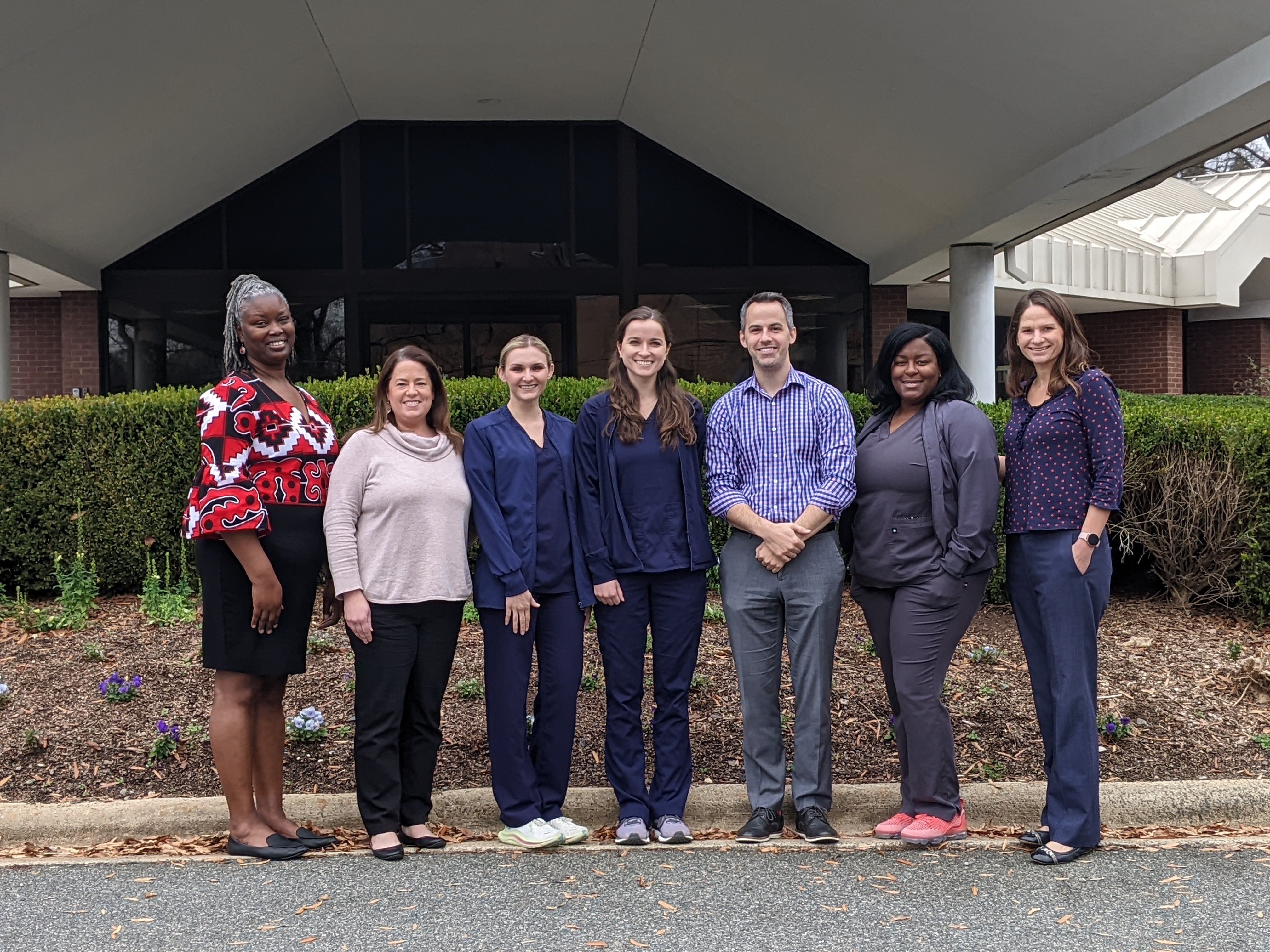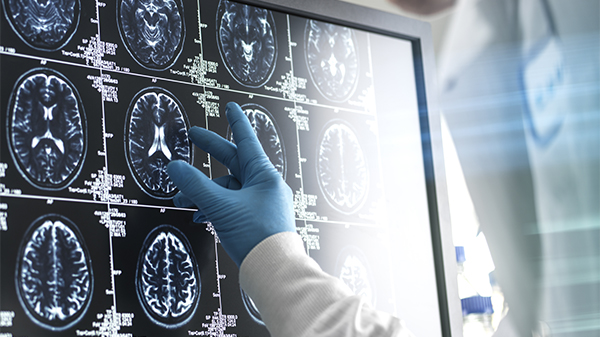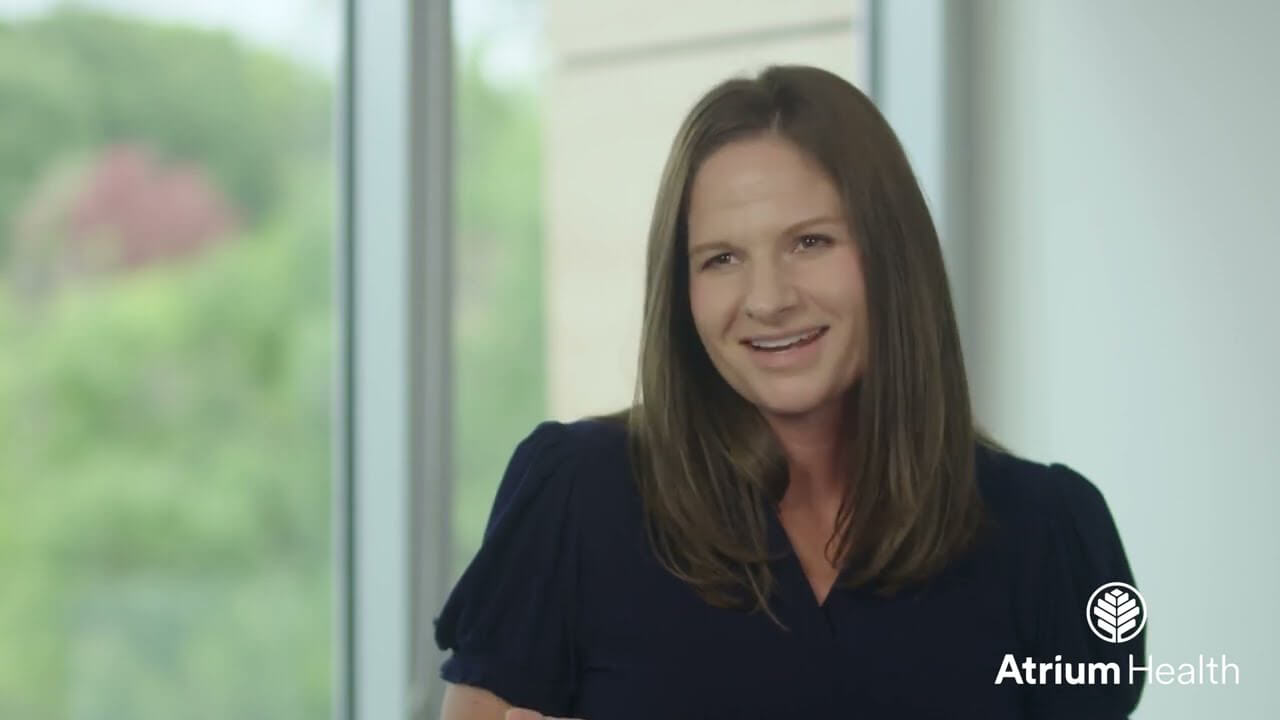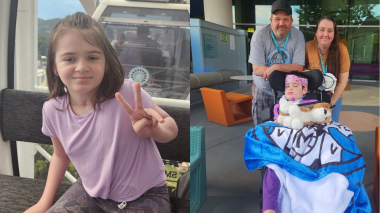Movement Disorders
Movement disorders like Parkinson’s disease, dystonia and essential tremor can make everyday tasks challenging and leave you worried about your future. At Atrium Health Neurosciences Institute, our caring movement disorder specialists are here for you every step of the way.
Our Parkinson’s Disease and Movement Disorders program offers help – and hope – for all types of movement disorders. From advanced diagnosis and innovative treatments that give you symptom relief, to long-term care and support for your physical and mental well-being, our experts empower you to take control of your condition.
New patient appointments are by referral only. Ask your doctor if our program is right for you.Learn more about movement disorder care at Atrium Health Neurosciences Institute.
Why choose Atrium Health Neurosciences Institute?
- Experienced experts: Our program includes neurologists who are fellowship-trained to care for movement disorders. That means they know the best ways to help you manage your condition and continue doing the things you enjoy.
- Team approach: We bring a team of specialists together to provide comprehensive, compassionate care. In addition to neurologists, you’re connected to neurosurgeons, neuropsychologists, nurses, dietitians, social workers and physical, occupational and speech therapists.
- Innovative treatments: We offer the latest and most promising treatment options for movement disorders, including deep brain stimulation and botulinum toxin injections.
- Customized care: Our experts focus on your quality of life and find ways to meet your specific needs. With a personalized treatment plan, you can move forward with confidence.
- National recognition: Our commitment to quality care has earned national recognition. We were the first program in the country to achieve The Join Commission Disease-Specific Care Certification for Parkinson's disease.

Meet the Team
Our movement disorders team collaborates to care for you. From left:
- Kim Gamble, DBS coordinator;
- Katherine Sherry, LCSW, medical social worker;
- Nicole Caruso, RN, program coordinator;
- Caroline Swanger, RN, team nurse;
- Nicholas Fleming, MD, movement disorders specialist;
- Chandley Floyd, CMA;
- Danielle Englert, MD, Parkinson’s Disease and Movement Disorders program director and DBS program director.
Patient care – movement disorders we treat
Movement disorders are neurological conditions that cause problems with how your body moves. This can include increased abnormal movements or slow or reduced movements, often with symptoms that get worse over time.
Our specialists are skilled in evaluating and treating all types of movement disorders, from the earliest stages to the most advanced.
Conditions we treat include:
- Parkinson’s disease and atypical parkinsonism
- Tremor, including essential tremor
- Ataxia
- Blepharospasm and hemifacial spasm
- Drug-induced movement disorders
- Dystonia
- Huntington’s disease
- Myoclonus
- Restless legs syndrome (RLS)
- Tics and Tourette syndrome
Movement disorder diagnosis and testing
Effective treatment starts with having an accurate diagnosis. To determine the underlying cause of your condition, our movement disorder specialists ask questions about your symptoms and medical history and perform a comprehensive neurological exam.
Other tests may include:
- Dopamine transporter scan (DaTscan)
- Magnetic resonance imaging (MRI)
- Genetic tests
- Blood tests
Movement disorder treatments
Once we better understand the cause of your symptoms, we design a personalized treatment plan that uses the latest therapies to maximize your quality of life.
Depending on your specific needs, your care may include:
- Medications: There are many drugs that can be used to manage movement disorders. Our specialists can help you find the medication that’s most helpful for you.
- Therapy and rehabilitation: We provide comprehensive physical, occupational and speech therapy in collaboration with Atrium Health Carolinas Rehabilitation. These services can help you improve or maintain your ability to control your movements and function more independently.
- Botulinum toxin injections: In this treatment, an injection is given to temporarily relax muscles, reducing spasms and involuntary movements.
- Lifestyle changes: Exercising, getting good sleep and eating a balanced diet can be beneficial for managing movement disorders. Your care team, including a dedicated dietitian, can help you make lifestyle changes to feel your best.
- Deep brain stimulation (DBS): This procedure works by placing small electrodes in the brain that interrupt abnormal signals that can cause tremors, stiffness and slowness. We’re proud to be the most experienced DBS surgical program in the region. Meet our partner DBS surgeon.
- Focused ultrasound: As nationally recognized neurology and neurosurgery programs, we offer focused ultrasound for essential tremor and tremor-dominant Parkinson’s disease in collaboration with our team at Atrium Health Wake Forest Baptist. Using focused ultrasound waves, this incision-free brain surgery can provide same-day hand tremor relief. Learn more about focused ultrasound.
Patient resources
- Parkinson’s Association of the Carolinas
- Parkinson’s Foundation
- International Essential Tremor Foundation
- Huntington’s Disease Society of America
- National Ataxia Foundation
- Tourette Association of America
Research
Our neurological expertise is powered by leading-edge research. We participate in innovative studies to better understand what causes movement disorders and look for potential cures. And we apply the latest findings in real time to provide the best possible care.

Find a clinical trial
Through our in-house neurosciences research, we give patients access to potentially breakthrough therapies. Use our search tool to find current clinical trials. To learn more about our available studies, talk to your doctor.
Search clinical trialsFor referring providers
When you refer a patient to us, we keep you involved and up to date throughout their care. To make a referral, call our dedicated physician referral line at 704-468-0101 or send a fax to 704-468-0022.
Frequently asked questions
There are many types of movement disorders, and symptoms vary depending on your diagnosis and how it affects you. Some common symptoms include:
- Tremors (shaking)
- Stiffness
- Balance or coordination problems
- Slow movement
- Involuntary movement
Symptoms of a movement disorder range from mild and subtle to severe and disabling. Many are chronic or progressive, meaning that the symptoms get worse over time.
The two most common movement disorders are essential tremor and Parkinson’s disease.
We see and treat patients with all types of movement disorders, including rare conditions. No matter what you’re facing, you can count on experienced doctors who are dedicated to helping you live life to the fullest.
If you’re concerned that you may have a movement disorder, a neurologist with special training in movement disorders can provide the most accurate diagnosis.
Our movement disorder specialists use a range of diagnostic tools and techniques to pinpoint the cause of your symptoms. The process may include:
- A review of your symptoms and complete health history
- A thorough neurological exam
- Dopamine transporter scan (DaTscan)
- Magnetic resonance imaging (MRI)
- Genetic tests
- Blood tests
Deep brain stimulation (DBS) is a surgical treatment that’s most commonly used to treat Parkinson’s disease, dystonia and tremor. If medications are not effective in managing your symptoms, or if you experience serious side effects, your neurologist may recommend DBS.
During DBS, a neurosurgeon places electrodes in the brain that connect to a device implanted in the chest. The device sends signals back to the electrodes that modify the brain activity that causes abnormal movements.
Our experts provide a comprehensive evaluation to determine if DBS will be a safe and effective treatment for you.
Focused ultrasound is an innovative, incision-free treatment for hand tremor caused by essential tremor or Parkinson’s disease.
Guided by magnetic resonance imaging (MRI), focused ultrasound waves precisely target the area of your brain that controls your tremor. In most cases, relief from tremor symptoms is noticeable immediately after the procedure.
We connect eligible patients to focused ultrasound treatment at Atrium Health Wake Forest Baptist in Winston-Salem, NC. If you’re interested in learning more, talk to your doctor. You can also find information about the treatment process, eligibility, side effects and more on this focused ultrasound treatment page.
Returning patients: Call 704-468-0101 or schedule through MyAtriumHealth.
New patients: Appointments for new patients are by referral only. If you’re interested in seeing one of our specialists, talk to your doctor. Referring physicians can fax a referral to 704-468-0022. To learn more about our program, call 704-468-0101.
There are a few things you can do to get ready for your first appointment with a movement disorder specialist.
- Keep a detailed record of recent symptoms that you can share with your doctor
- Bring or write down all medications you’re currently taking
- Make a list of questions you want to ask
- Know that your visit may include tests and exam that take a few hours to complete
If you have questions or concerns about your appointment, call your doctor’s office.
Atrium Health offers lifelong care for movement disorders.
For children 17 and under, movement disorder treatment is led by Atrium Health Levine Children’s, which is ranked among the best pediatric neurology and neurosurgery programs nationwide by U.S. News & World Report.
As children enter adulthood, they’re seamlessly transitioned to our adult Parkinson’s Disease and Movement Disorders program at Atrium Health Neurosciences Institute, which focuses on treating ages 18 and up.
See why our patients choose Atrium Health
Our Providers
Meet our providers and find the one for you. Use the filters to narrow your search.



